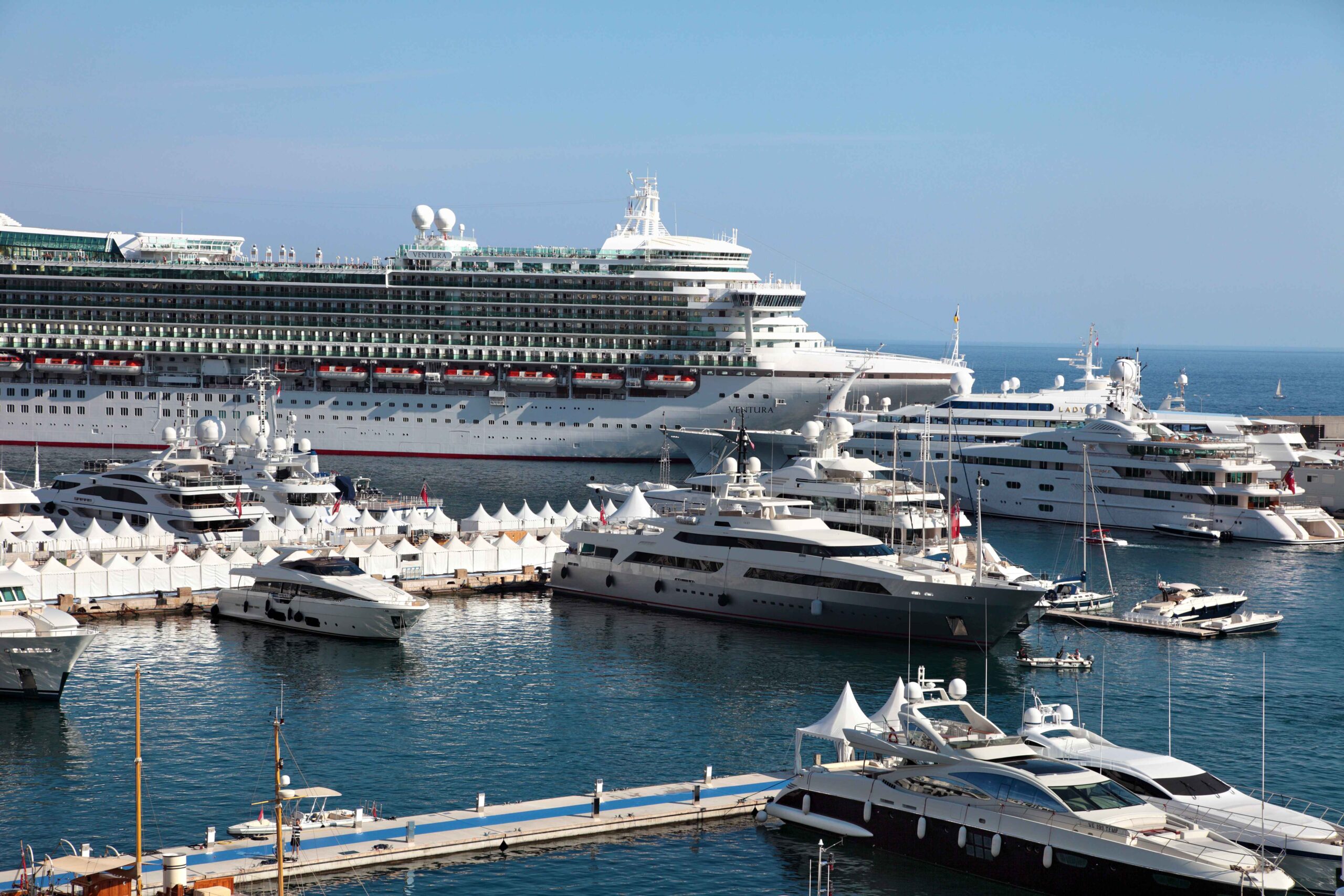Abu Dhabi Aims For AED90 Billion Tourism Contribution By 2030

In a bold move that reflects its rising stature in the global tourism arena, Abu Dhabi has set its sights on a substantial economic milestone. By 2030, the emirate is aiming for an AED90 billion ($24.5 billion) contribution from its tourism sector to the national GDP. This strategic target not only highlights Abu Dhabi’s commitment to diversifying its economy but also underlines its evolving appeal as a global destination for culture, heritage, entertainment, and business. The projection reflects the growing confidence of the emirate’s leadership in the sector’s capacity to drive sustained economic growth, job creation, and international recognition.
Tourism Vision Aligned With National Economic Goals
The AED90 billion tourism GDP goal sits at the heart of the emirate’s wider ambitions outlined in its economic diversification roadmap. Abu Dhabi’s Department of Culture and Tourism (DCT Abu Dhabi) has long emphasized the need to create a sustainable and competitive tourism ecosystem that supports both economic resilience and cultural preservation. The targeted contribution by 2030 aligns closely with the UAE’s broader national tourism strategy, which aims to position the country as one of the world’s most visited destinations.
As part of this commitment, Abu Dhabi is intensifying efforts to enhance infrastructure, expand its hospitality offerings, and create year-round attractions. These developments are expected to support the influx of millions of international visitors while also encouraging local and regional tourism flows. The emirate is also placing significant focus on training, innovation, and digital transformation in the tourism sector to ensure competitiveness in a rapidly evolving global market.
Cultural and Heritage Anchors of Abu Dhabi’s Tourism
One of the most defining features of Abu Dhabi’s tourism strategy is its emphasis on cultural authenticity. Unlike many global destinations that have focused largely on leisure or business travel, Abu Dhabi has strategically positioned its historical and cultural offerings at the forefront. World-renowned institutions like the Louvre Abu Dhabi and upcoming cultural complexes such as the Zayed National Museum and Guggenheim Abu Dhabi are central to this vision.
These cultural anchors are more than just attractions—they are part of a broader narrative that invites visitors to explore the emirate’s identity, from ancient Bedouin traditions to modern architectural marvels. They contribute not only to tourism revenue but also to the emirate’s international image as a leader in arts, education, and intellectual engagement.
Investment in Hospitality and Luxury Experiences
Abu Dhabi’s hospitality sector is undergoing rapid transformation with a wave of new hotel openings, luxury resorts, and high-end retail experiences. By 2030, the emirate is projected to increase its hotel capacity significantly, in response to the growing number of annual tourists. These developments are backed by both government incentives and international private investments.
High-profile international hotel brands are expanding their presence in the emirate, while homegrown concepts are also being supported to cater to diverse tourist demographics. From the luxurious St. Regis Saadiyat Island Resort to the family-friendly Yas Island hotels, Abu Dhabi is ensuring it has a comprehensive portfolio to suit various travel preferences. Events, culinary experiences, and wellness retreats are being woven into this hospitality framework to ensure each visitor leaves with a lasting impression.
Yas Island and Entertainment Mega Projects
Entertainment is another major pillar in Abu Dhabi’s tourism growth strategy. Yas Island, the emirate’s flagship leisure destination, has become a magnet for regional and international tourists, especially families. Home to theme parks such as Ferrari World, Yas Waterworld, Warner Bros. World, and SeaWorld Abu Dhabi, Yas Island exemplifies the emirate’s focus on curated family-centric entertainment.
The continued expansion of Yas Island, including plans for new attractions and enhanced visitor experiences, is expected to significantly increase tourist footfall in the coming years. Additionally, events such as the Abu Dhabi Grand Prix, UFC matches, concerts, and cultural festivals draw massive international crowds, contributing to the tourism GDP target.
Eco-Tourism and Desert Experiences Gaining Popularity
Abu Dhabi is also tapping into eco-tourism and sustainable travel, sectors that are seeing heightened interest globally. The emirate’s deserts, oases, mangroves, and mountainous areas offer unique experiences for tourists seeking nature-based adventures and off-the-beaten-track travel. Guided desert safaris, wildlife reserves such as Sir Bani Yas Island, and glamping experiences are attracting environmentally conscious travelers looking for authentic encounters with the UAE’s natural beauty.
Authorities are working closely with developers and conservationists to balance tourism development with ecological protection. Sustainable infrastructure and low-impact travel experiences are being prioritized, particularly in remote areas, to ensure long-term viability.
MICE Tourism: Business Events and Conferences
Abu Dhabi is increasingly being recognized as a regional hub for meetings, incentives, conferences, and exhibitions (MICE). The Abu Dhabi National Exhibition Centre (ADNEC) and several high-end conference facilities host global events ranging from defense expos to tech summits. Business tourism plays a critical role in year-round visitor engagement and high-spending segments, contributing significantly to the tourism GDP goals.
With the emirate’s position as a gateway between East and West, and its well-established aviation connections, Abu Dhabi is well-placed to attract more corporate and institutional events in the years ahead. Future plans include the development of more integrated conference resorts and business districts that support both productivity and leisure.
Strategic Marketing and International Outreach
To support its ambitious tourism goals, Abu Dhabi is deploying aggressive international marketing campaigns, partnerships, and destination promotions. Collaborations with major global travel influencers, media houses, and digital platforms have increased the emirate’s visibility. Initiatives such as “Experience Abu Dhabi” and joint ventures with international tourism boards aim to attract new demographics, especially from key markets like India, China, Europe, and North America.
These campaigns are not just about promoting attractions but also about reshaping global perceptions. By showcasing the emirate’s safety, hospitality, infrastructure, and values, Abu Dhabi is positioning itself as a cosmopolitan yet culturally rich destination that offers something for everyone.
Strengthening the Aviation and Connectivity Ecosystem
Tourism development in Abu Dhabi is closely tied to the growth of its aviation sector. Etihad Airways, the national carrier based in the capital, plays a crucial role in increasing connectivity with the rest of the world. Through expanded routes, codeshare agreements, and strategic alliances, Etihad continues to drive inbound travel and tourism.
The newly expanded Zayed International Airport, with its state-of-the-art terminal and enhanced passenger capacity, is poised to become a major transit hub. This infrastructure improvement supports not only tourism but also Abu Dhabi’s strategic ambition to become a key connector for global travelers.
Empowering Local Communities and Tourism Talent
Another key component of the tourism strategy is the empowerment of Emirati talent and local communities. The government is investing in training programs, hospitality academies, and tourism education to prepare a new generation of professionals who can deliver world-class experiences while preserving local authenticity.
Local artisans, heritage site custodians, tour guides, and cultural ambassadors are being brought into the tourism value chain to ensure economic benefits are distributed widely. At the same time, Emirati youth are being encouraged to see tourism not just as a job, but as a career with vast potential.
Digital Innovation and Smart Tourism
In an era where digital innovation defines visitor experiences, Abu Dhabi is rapidly adopting smart tourism solutions. Mobile apps, digital booking systems, AI-powered concierge services, and immersive virtual reality previews are all part of the emirate’s transformation. These technologies are not only enhancing the visitor journey but also providing critical data for optimizing tourism operations and planning.
By integrating smart infrastructure across hospitality, transportation, and entertainment, Abu Dhabi is building a seamless and intelligent tourism ecosystem that meets modern traveler expectations.
Resilience in the Face of Global Challenges
Despite global economic uncertainty and past disruptions such as the COVID-19 pandemic, Abu Dhabi’s tourism sector has demonstrated notable resilience. Swift policy responses, targeted stimulus packages, and flexible regulations helped the emirate recover faster than many regional peers. Today, Abu Dhabi is not just recovering—it is surging forward with renewed vigor and a clear sense of direction.
Ongoing risk assessment frameworks and contingency planning ensure that the emirate is prepared for future challenges while remaining on track toward its 2030 GDP tourism target. The government’s ability to adapt and evolve is a key asset in this journey.
Description:
Abu Dhabi sets an ambitious target of AED90 billion contribution to GDP from tourism by 2030, transforming its global appeal.








1 Comment
[…] growing global concern and calls for increased support, the UAE’s contribution aims to help provide essential aid including shelter, food, medical support and protection for […]
Comments are closed.